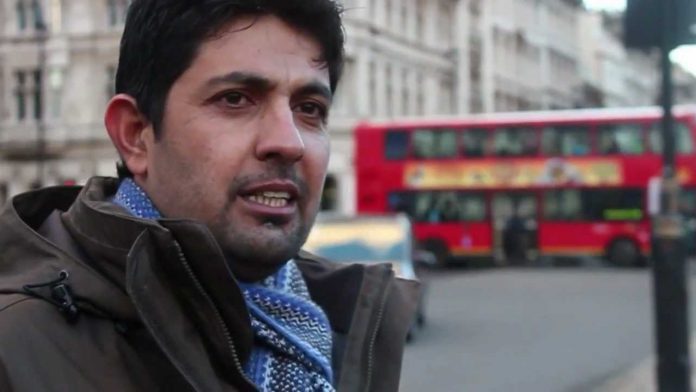BERLIN: Exiled Baloch leaders and activists will gather in Berlin, Germany, on August 11 to voice their protest against the under construction multi-billion dollar China Pakistan Economic Corridor (CPEC).
The event titled “China’s One Belt One Road Initiative – Its adverse impact on Balochistan & the region” would be organized by the European branch of Baloch National Movement (BNM), a Baloch nationalist political group.
Hammal Haider, the foreign secretary of the Baloch National Movement, said, “The purpose of the Berlin conference is to engage scholars from around the world to have a candid debate on China’s One Belt Road One Road (OBOR) initiative. The Baloch National Movement believes OBOR and its related projects not only affect Balochistan but also other nations in the world.
“In this situation, I think, it’s high time we work with other nations and countries who also oppose OBOR / CPEC”, he said.
The BNM has invited experts, analysts, journalists, economists, civil society actors and policy makers to discuss the impact of economic corridor.
People in Balochistan, Pakistan’s resource rich province, are opposing CPEC, which runs mostly through the region. Balochistan is in the throes of a popular movement for self-determination that is gathering intensity.
For the indigenous Baloch people, CPEC is seen as a threat. As CPEC gets implemented in Balochistan, there is a fear of a massive inflow of migrants from different areas of Pakistan which will change the demography of Balochistan and reduce the Baloch people to a permanent minority in their historic homeland.
Ghaffar Baloch, President of BNM Germany, told ANI, “CPEC is no way an economic project. Pakistan and China together are building a military infrastructure in Balochistan’s coastal areas. The purpose is to strengthen their military supremacy in the region which we believe will undermine the stability of the region.”
Nevertheless, Chinese footprints are on the increase in Pakistan and inroads into Balochistan is becoming increasingly visible.
In order to provide security to Chinese facilities, Pakistan is raising special security groups and intensifying army operations in Balochistan.
China came up with its One Belt One Road (OBOR) initiative in 2013, and during the last four years, it has displayed its willingness to follow through on its plans.
It is gaining traction as more and more countries from around the world are joining OBOR. This was evident in the May 2017 meeting in Beijing where the Chinese President called it the “project of the century”. The OBOR is now being renamed as Belt and Road Initiative (BRI) to overcome the limitations of the earlier nomenclature, “One belt one road”, because it is expected to involve many roads and many belts.
The initiative involves investment of about $4 trillion or more as it is in an ever-expanding mode and more and more countries are joining it in the hope of reaping trade and commercial dividends out of massive infrastructure bring built around Asia, Europe and Africa to facilitate flow of goods and services.
China aims to be at the centre of a massive economic transformation such grand initiative would galvanize.
The project seeks to enable a 21st century “Silk Route”, comprising both overland and maritime access routes through installation of new, as well as upgradation of existing transport and communication infrastructure in countries hoping to reap the dividends.
































